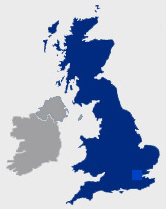Casino recent history part 1
Later in the year we’ll look at the ancient history of casinos in the UK, going back to before the 1968 Gaming Act, which really shaped how things developed in a big way – for a start it cut the number of UK casinos down from over 1,000 to just over 100.
For now we wanted to take a look at what happened in the years leading up to the other major bit of gaming legislation, the Gambling Act 2005.
Back in the mid 1990’s, the casino scene wasn’t unrecognisable from the picture we have today, with only the names really changing and plenty of consolidation taking place. Genting wasn’t Genting, it was Stanley Leisure (who also owned a large number of betting shops). They were based out of Liverpool, and having been founded by Leonard Steinberg, whose origins were in the bookmaking trade, they went aggressively into acquisitions. They bought out the Brent Walker casinos, followed by a clump from Leading Leisure, and then the Tower Group, as well as, critically, 3 London casinos from the troubled Capital Corporation. This acquisition included the Cromwell Mint, the Colony Club and the super top-end Crockfords, all of which stick with the company today, which is now named Genting after being taken over by the Malaysian giant in 2006.
Rank was still Rank in the mid 1990’s, but their casinos all traded under different names, some of which can still be heard today by faithful players – Sergeant Yorke’s, Tiberius, Soames casinos and so on. The casinos have all been rebranded long since (into either Grosvenor or G) but some players refer to them by their old names. The company had grown from the acquisition of a single casino in 1989 (Great Yarmouth) into a major player with the acquisition of Mecca Leisure shortly afterwards, and ever since have looked to expand. New builds like Aberdeen, the G Piccadilly and Salford have been complemented by acquisitions in the 1990’s such as Leeds and Swansea, but their key strategy (since copied by other operators) has been to relocate some of the older, city centre clubs – the original smoky dives – into more mainstream leisure sites. The original swathe of relocations trade under “Grosvenor Casinos”, but before long the move towards the mainstream became exemplified by their “G” brand. These new G sites are almost all on the edge of the town or city centre, with plenty of parking and space, a cool, dark decor and large bars, restaurants and poker rooms.
LCI (London Clubs International) are the third major player in the UK casino market (now that Gala have been sold to Rank – see below). They started with several London sites, and made a very ill-advised venture into the Las Vegas market, opening the Aladdin casino around the turn of the century. For whatever reason – and a decline in Vegas as a whole didn’t help – this went south in a big way (and is now the Planet Hollywood casino). LCI began to open provincial casinos in 2006, and moved into Brighton, Nottingham, Leeds, Glasgow and Manchester, with varying degrees of success (Leeds is now closed). Their big success story, however, is the Empire Leicester Square – after some teething troubles getting the offer right, it’s now a powerhouse of UK casinos.
Gala Casinos appeared when the Gala Group (also better known for its Coral betting shops and Gala Bingo) bought out the Ladbrokes casinos from the Hilton. These sites had a bit of history in any case, being Stakis casinos before that, and glorying in a range of names including the highly suspect Pleasurama previously. More recently the bulk of these casinos have been sold to Rank, but that’s a matter for the next chapter.


